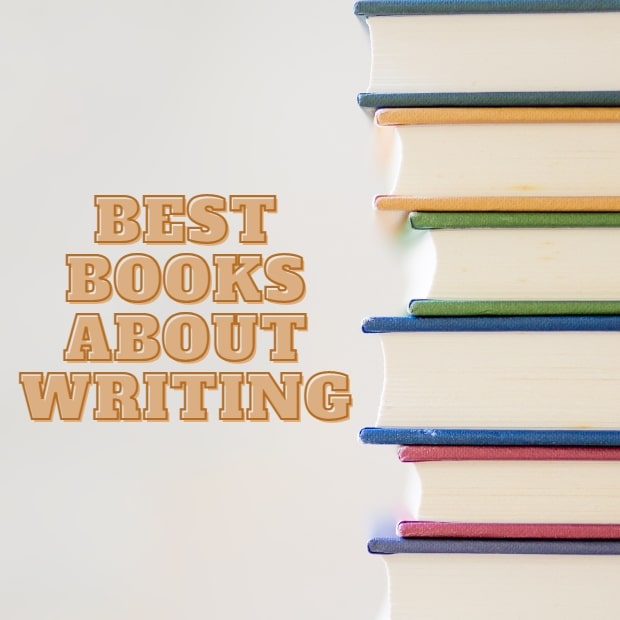
Imagine drawing from the wellspring of wisdom penned by literary giants themselves!
It’s a treasure trove out there, with many celebrated authors sharing their writing odysseys, challenges, and insights in books. When one ascends to mastery in their craft, it’s almost instinctive to light the way for others. For budding writers, what better mentorship than diving into books about the art of writing penned by the literary legends themselves? Join us as we embark on a curated journey, spotlighting the quintessential reads that every writer must explore.
Here’s a list of the best books about writing:
1. On Writing, A Memoir Of The Craft – Steven King
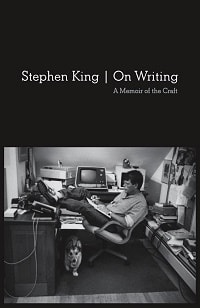
This is a classic of the book-writing genre, which every newbie novelist should read. There are some great lessons in the book. One of them is that you should “kill your darlings” – parts of the story which you love, but which ultimately won’t make it to the final cut. The other one is that you should learn to appreciate rejection. Carrie, which brought King to the heights of fame was rejected over one hundred times. Quote from the book: “The scariest moment is always just before you start.”
2. The War of Art: Break Through the Blocks and Win Your Inner Creative Battles – Steven Pressfield
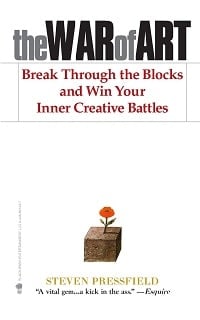
Oftentimes, learning sophisticated vocabulary or acquiring impeccable grammar skills is not a major problem for a new writer. The major thing is sitting down and producing the work. “The War of Art” addresses this issue more than any other book I’ve read. It will help you to “turn pro” and develop a creative routine. Go for frequency first, and in time, the quality will come as well. Quote from the book: “If you find yourself asking yourself (and your friends), “Am I a writer? Am I an artist?” chances are you are. The counterfeit innovator is wildly self-confident. The real one is scared to death.”
3. Bird by Bird, Some Instructions on Writing and Life – Anne Lamott
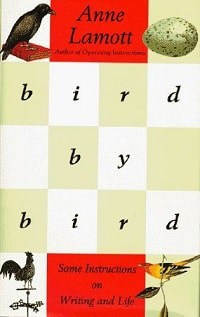
When you first sit down to start your writing project, it can seem like climbing Kilimanjaro. Where do you start? How do you structure your essay, expository work, or a novel? How do you develop characters? And how do you come up with the first draft without pulling your hair out? The answer Anne Lamott offers is disarmingly simple: you do it “bird by bird”. Quote from the book: “You own everything that happened to you. Tell your stories. If people wanted you to write warmly about them, they should have behaved better.”
4. The Sense of Style: The Thinking Person’s Guide to Writing in the 21st Century -Steven Pinker
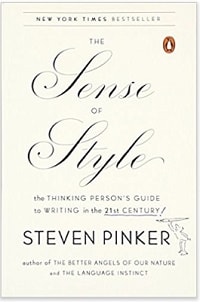
This is a clear guide for anyone who wants to produce better prose for a modern, busy, digital reader. Steven Pinker comes from the world of academia which is plagued by legalese, bureaucratese, and other mumbo-jumbo that obstructs the true meaning of each sentence. Modern readers don’t have time to deal with verbosity and “The Sense of Style” is a good antidote to this phenomenon. Quote from the book: “It takes cognitive toil and literary dexterity to pare an argument to its essentials, narrate it in an orderly sequence, and illustrate it with analogies that are both familiar and accurate.”
5. On Writing Well – William Zinsser
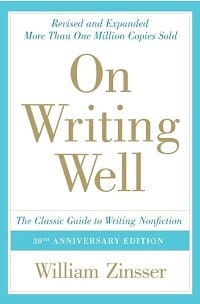
This is one of the top titles on the subject of writing. It’s been released in many different editions and for the right reason. It offers clear advice on how to approach almost any subject matter and write well about it. The main thing I’ve learned from it is that you need to be merciless in the editing stage. The author suggests that you reduce your first draft by around 50% by cutting out all the unnecessary garbage. Leave only the stuff that’ll be useful for the reader. Quote from the book: “Examine every word you put on paper. You’ll find a surprising number that don’t serve any purpose.”
6. The Elements of Style – William Strunk Jr.

This is probably the most cited writing advice classic of all time. The main message of “The Elements” is that you should “omit needless words”. Get rid of the adverbs, make your sentences shorter, and make them punchier and stronger. In other words – be like Ernest Hemingway. (There’s even an app named after him that can help you trim down your prose.) Quote from the book: “When a sentence is made stronger, it usually becomes shorter. Thus, brevity is a by-product of vigor.”
7. The Ultimate Sales Letter – Dan Kennedy
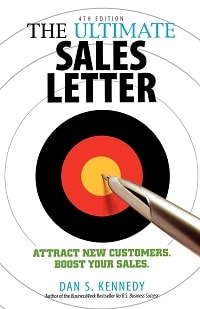
Dan Kennedy is a master copywriter who charges clients over $100k per writing project. This is only because his words persuade people to buy products on a massive scale. In this book, he shares some of his most guarded sales copy secrets. The three-step letter, the sales-letter template, and other strategies will help you to write effective copy. Quote from the book: “Always enter the conversation already occurring in the customer’s mind.”
8. Writing Down the Bones – Natalie Goldberg
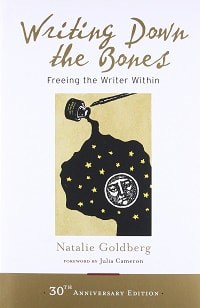
This one comes from a writer who’s been organizing writing workshops for over twenty years. It’s introducing the concepts of Zen and mindfulness to the art of writing. The tone of the book is motivational and it will get your fingers tapping on the keyboard in no time. Then the Zen part comes in – you need to release your ego-self from the process and just write without crossing anything out. Quote from the book: “Write what disturbs you, what you fear, what you have not been willing to speak about. Be willing to be split open.”
9. On Writing – Henry Miller
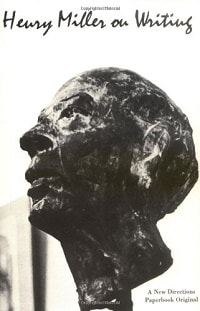
Henry Miller was one of the best writers of the 20th century, and his musings about the craft are priceless. “On Writing” contains an extensive reading list of titles you’ve never even heard about, but which contributed to MIller’s evolution. If you want to write, you first need to read. You’ll first emulate the style of other people before you develop your own. Quote from the book: “Every man, when he gets quiet when he becomes desperately honest with himself, is capable of uttering profound truths.”
10. The Copywriter’s Handbook: A Step-by-step Guide to Writing Copy that Sells – Robert W. Bly
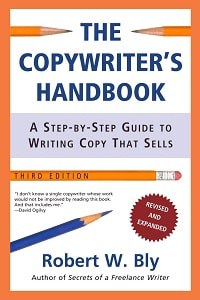
Did you know that Salman Rushdie, one of the most acclaimed novelists of today started as a copywriter for an ad agency? He said that it helped him to develop a clear communication style and storytelling skills which are essential to a successful writing career. In The Copywriter’s Handbook, Bob Bly shares some priceless advice on how to persuade and evoke emotions in people using the written word. Quote from the book: “The surest way to arouse and hold the attention of the reader is by being specific, definite, and concrete. The greatest writers—Homer, Dante, and Shakespeare—are effective largely because they deal in particulars and report the details that matter.
11. The Writing Life – Annie Dillard
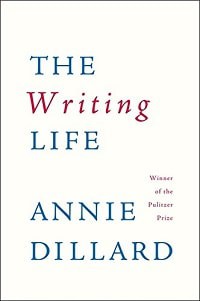
This book is only 113 pages long and it’s a one-way ticket into the challenging world of full-time writing. There’s nothing glamorous in it. No sudden eruptions of genius, no dramatic flights of creative splendor. Just the down-and-dirty routine of putting things out of your head and onto the screen or a piece of paper. Quote from the book: “He is careful of what he reads, for that is what he will write. He is careful of what he learns, for that is what he will know.”
12. Letters to a Young Contrarian – Christopher Hitchens
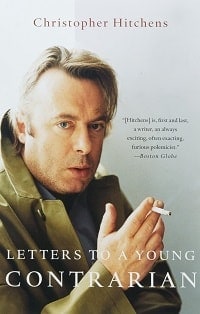
This is not a “writing book” per se, but it’s an excellent introduction to the life of a radical, an artist, and a freedom-lover. Becoming a good writer is not only about thinking, writing, reading, and editing. It’s a much broader task which requires you to savor life and everything it has to offer. To tell stories you need to know people, travel the world, and develop your views. Highly quotable, this book will teach you how to develop a wider perspective on life. Quote from the book: “Stay on good terms with your inner Yossarian.”
13. Stein On Writing: A Master Editor of Some of the Most Successful Writers of Our Century Shares His Craft Techniques and Strategies – Sol Stein
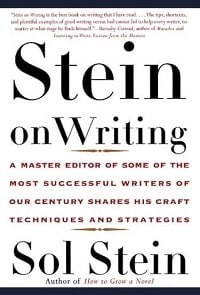
Sol Stein is one of the top editors of our time and this book is a treasure trove of writing advice. Stein’s unique experience helps us to see the writing process from the editor’s perspective. The best thing about this book is that it’s not a story, but a solid, example-filled manual with actionable solutions for every writing issue. Quote from the book: “Good writing is supposed to evoke sensation in the reader, not the fact that it’s raining, but the feeling of being rained upon.”
14. The Writer’s Process: Getting Your Brain in Gear – Anne Janzer
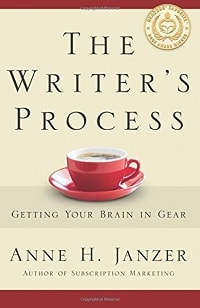
This book got a big endorsement from Seth Godin who encourages artists and entrepreneurs to overcome their lizard brains and finally get to work. From it, you’ll receive lots of ideas about overcoming the creative block, dealing with feedback, and finding uninterrupted time for writing in your busy life. And everything you’ll learn will be based on the newest ideas from cognitive science. Quote from the book: “Attention and focus are essential skills for writers in a noise-filled world.”
15. You Are a Writer (So Start Acting Like One) – Jeff Goins
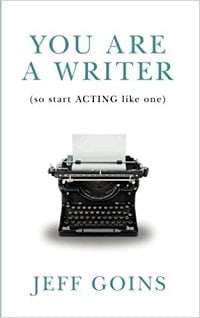
Jeff Goins is one of the most popular bloggers in the world (and the author of four books). In “You Are A Writer” he shares some of his struggles with the art and craft of writing. The book will teach you how to build a platform, how to blog, how to network with other influencers, how to get published in magazines, and even how to build your brand to attract more work and opportunities. Quote from the book: “When I started writing every day, I realized a painful truth: I can’t react and create at the same time. Neither can you.”
16. The Workplace Writer’s Process: A Guide to Getting the Job Done – Anne Janzer
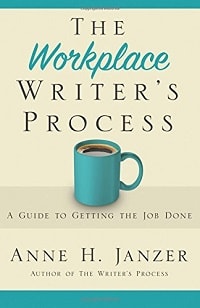
Writers like Charles Dickens famously locked themselves from the outside world and had a strict work routine. It was always about silence and maximum concentration for four to five hours a day. Yet in today’s world, we often need to write while surrounded by other people and electronic interruptions. Anne Janzer’s book is an answer to this problem. You’ll learn how to structure your approach to writing and see it as a process. This is especially useful for freelancers. Quote from the book: “When you’re writing in a workplace, it’s a team sport”
17. 2k to 10k: Writing Faster, Writing Better, and Writing More of What You Love – Rachel Aaron
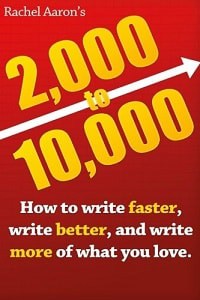
Most professional writers have a daily word count goal they want to reach. For Hemingway, it was 500 words a day (he would stop in mid-sentence and wait until the next day). For Graham Greene who wrote multiple novels, screenplays, and short stories it was around 300 words per day in the latter part of his life. Routine matters. But how about 10,000 words per day? Rachel Aaron will show you the methods she uses to induce a state of flow and accomplish this ambitious benchmark. Quote from the book: “If you want to write faster, the first step is to know what you’re writing before you write it.”
18. Zen in the Art of Writing: Essays on Creativity – Ray Bradbury
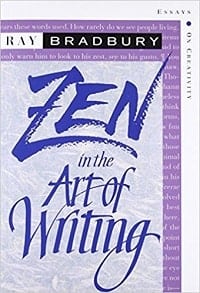
This is a slightly more eclectic title from the “How to Write” bookshelf. It’s not a strict manual, but rather a journey full of musings about the writing life. It contains lots of anecdotes, stories, and advice on how to develop a writing style and bring more creativity into your prose. Quote from the book: “That’s the great secret of creativity. You treat ideas like cats: you make them follow you.”
19. The Right to Write: An Invitation and Initiation Into the Writing Life – Julia Cameron
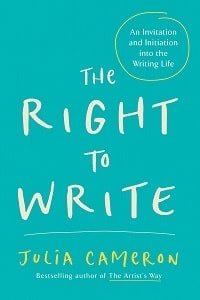
This is a perfect book for novices in the field. Julia Cameron argues that the traditional approach to writing is stifling creativity and turning the process into a drag. Writing should be more joyous, and reflective and serve not only as a way to make a living but as something we all do naturally. Quote from the book: “Writing is like breathing, it’s possible to learn to do it well, but the point is to do it no matter what.”
20. The Forest for the Trees – Betsy Lerner
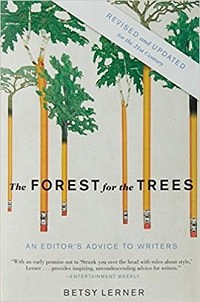
This is another piece of work created by an editor who wants to share some knowledge with the writers. Betsy has been editing numerous bestselling books so she can teach you a couple of things about the craft. The most fascinating part of the book is about adjusting your writing process to your personality type. Quote from the book: “The world doesn’t fully make sense until the writer has secured his version of it on the page. And the act of writing is strangely more lifelike than life.”
Conclusion
How did you like this list of outstanding books about writing? Do you feel motivated to read some of them and learn from the masters?
Hey there, welcome to my blog! I'm a full-time entrepreneur building two companies, a digital marketer, and a content creator with 10+ years of experience. I started RafalReyzer.com to provide you with great tools and strategies you can use to become a proficient digital marketer and achieve freedom through online creativity. My site is a one-stop shop for digital marketers, and content enthusiasts who want to be independent, earn more money, and create beautiful things. Explore my journey here, and don't forget to get in touch if you need help with digital marketing.

